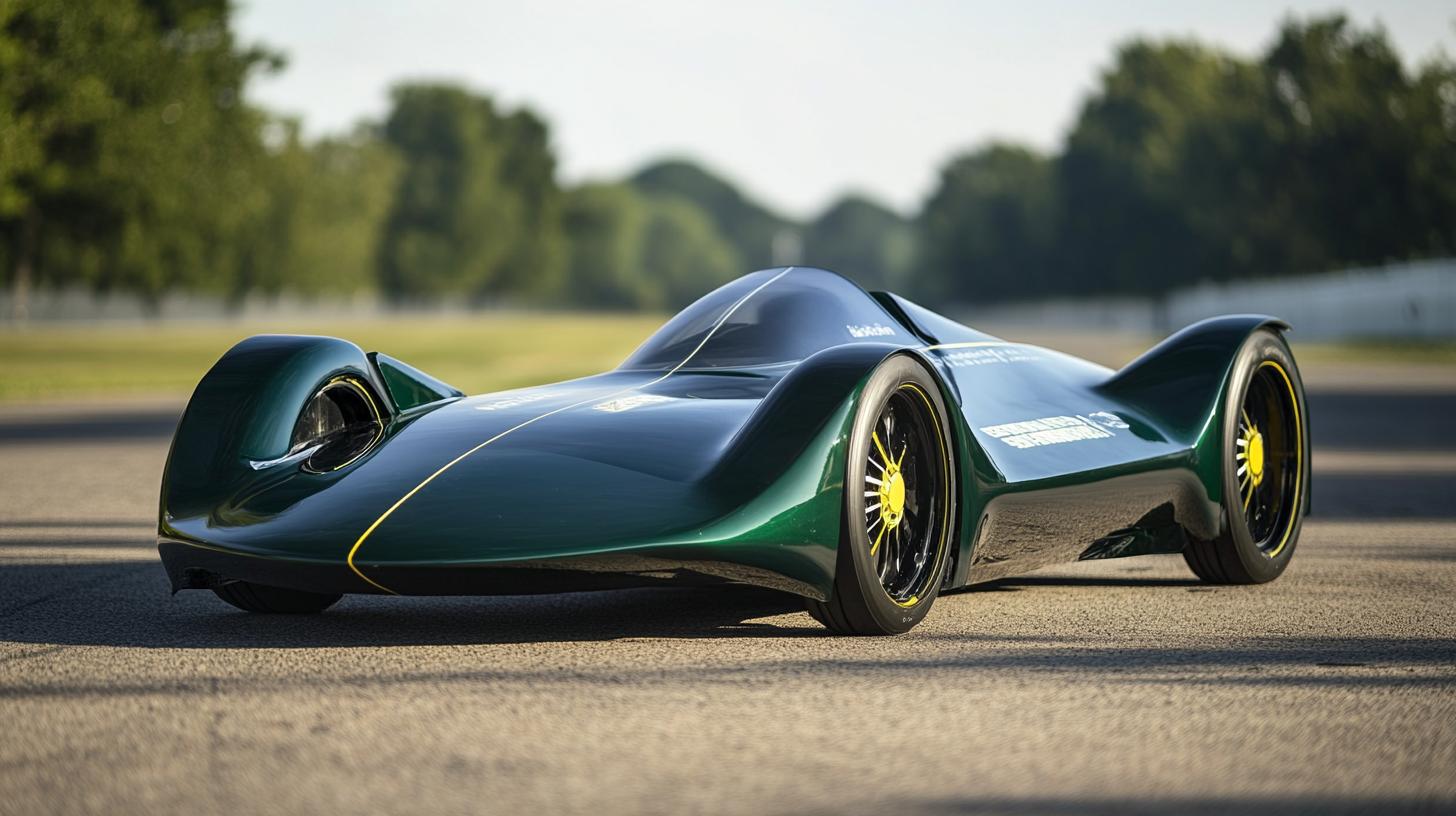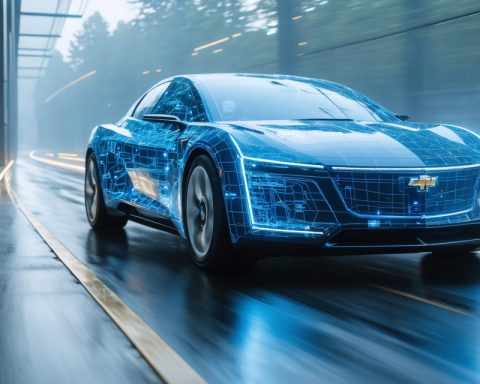Pioneering a green future for motorsport, a hydrogen-powered race car constructed from recycled materials is set to attempt multiple speed records. Developed by the talented students at Warwick Manufacturing Group (WMG) at the University of Warwick, this innovative vehicle exemplifies sustainable engineering.
The Waste2Race Le Mans Prototype (LMP3) is powered by a unique hydrogen fuel derived from wastewater, thanks to a collaboration with Severn Trent Water. Assembling this vehicle required not only creative students but also a strategic blend of spare and unused parts, underscoring its commitment to environmental sustainability.
Aiming to tackle several land speed records, the car is expected to be operational within a year, showcasing both standing and flying start potentials over a mile and a kilometer. The project showcases contributions from Ginetta, renowned for their expertise in crafting racing and sports cars. This project is adorned with eco-conscious features, including recycled carbon fiber components and a wing mirror innovatively made from beetroot waste.
Collaboration with ENRG Motorsport provided a salvaged battery, further emphasizing the car’s sustainability credentials, while the steering wheel showcases 100% natural materials.
Professor Kerry Kirwan from WMG recognizes the collaborative nature of this project, where students’ curiosity merges with industrial support to push the limits of technological advancement.
Scheduled for completion by 2025, the Waste2Race project represents a leap in eco-friendly technologies within the racing sphere. Severn Trent Water emphasizes their commitment to environmental progress by supporting such ground-breaking developments, seeing them as a pivotal step towards harnessing sustainable technologies.
Motorsport giants like Alpine and Toyota, and even competitions like Le Mans, are exploring hydrogen, aiming to transform racing into a cleaner sport.
The Impact of Hydrogen-Powered Racing Vehicles on Society and the Environment
The advent of hydrogen-powered race cars marks a significant shift in the automotive and motorsport industries, promising not only thrilling new speed capabilities but also a profound impact on sustainability practices worldwide. As evidenced by projects like the Waste2Race at the University of Warwick, the integration of hydrogen as a fuel source stands at the forefront of an ecological revolution in racing.
A New Era for Motorsport
Hydrogen-powered racing vehicles, such as the Waste2Race Le Mans Prototype (LMP3), showcase the potential for eco-friendly innovation. Unlike traditional race cars that run on fossil fuels, these vehicles rely on hydrogen fuel cells that emit only water vapors, thus drastically reducing carbon footprints. This presents an exciting possibility for making motorsport a leader in sustainable practices, demonstrating that high performance and environmental responsibility are not mutually exclusive.
Rippling Effects on Society
The implications of successfully integrating hydrogen-fueled vehicles extend far beyond the racetrack. By pushing the boundaries of current technology, these pioneering projects could hasten the adoption of hydrogen in everyday transport, potentially transforming the way societies commute. As hydrogen infrastructure develops, people might benefit from cleaner air and reduced greenhouse gas emissions, contributing to a healthier planet. Communities could see job creation in emerging sectors focused on building and maintaining hydrogen production and fuel distribution systems.
Challenges and Controversies
While the promise of hydrogen as a clean fuel is enticing, it is not without its controversies. Critics point out the energy-intensive processes required to produce hydrogen, often sourced from natural gas, which can negate some of its environmental benefits. The debate around the true ‘greenness’ of hydrogen-produced energy is ongoing, with a call for more investments in renewable-powered electrolysis. In addition, the infrastructural overhaul required for widespread hydrogen fuel adoption poses economic and technical challenges.
Global Implications
Countries leading in hydrogen technology development will likely influence this global energy transition. Nations investing heavily in hydrogen research, like Japan and Germany, could set the benchmark for others. The economic and environmental benefits presented by hydrogen innovation offer a promising strategy for nations to meet international climate agreements.
As more manufacturers and racing competitions embrace hydrogen, as seen with industry giants like Toyota and Alpine, the push towards a cleaner, technologically advanced future accelerates. Through collaborative efforts between industry, academia, and governments, hydrogen-powered racing not only captivates motorsport fans but also promotes global sustainability goals.
For more information on the advancements of hydrogen technology, visit Siemens Energy or explore developments in sustainable motorsport with Toyota.














